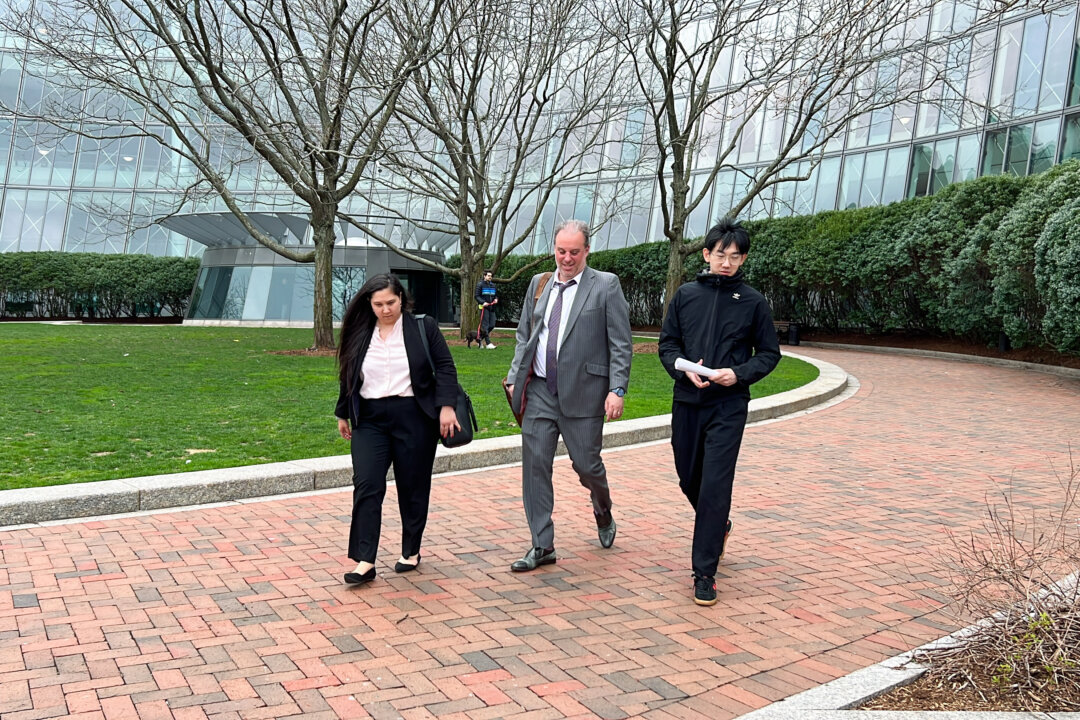It is unclear whether his release was part of a prisoner swap deal with China.
A Chinese national serving his nine-month prison sentence for cyberstalking and threatening a pro-democratic fellow student was released early in mid-September based on “significant foreign policy interests” of the United States. The case’s new development surfaced recently due to unsealed court documents and reports about Wu’s release being a part of a potential prisoner swap.
Wu Xiaolei, a Chinese citizen and former student of the Berklee College of Music in Boston, was convicted on Jan. 25 for stalking and threatening a fellow student who posted flyers in support of democracy in China. He was subsequently sentenced to nine months in prison on April 24.
Court papers indicate that Wu’s prison term was reduced to time served; he was released from a male prison in Allenwood, Pennsylvania, and returned to China on Sept. 16.
According to the documents of the U.S. District Court in Boston, the release was based on the U.S. government’s request based on “significant foreign policy interests of the United States” and President Joe Biden’s execution of his clemency power on Sept. 12.
Politico exclusively reported on Oct. 30 that Pastor David Lin’s release on Sept. 15, after 18 years in jail in China, was part of a prisoner swap with an “unidentified Chinese citizen in U.S. custody.”
However, the State Department has been mum about whether Wu’s release was part of a swap for an American to return home.
On Sept. 16, the State Department confirmed that Lin had reunited with his family in the United States.
When asked whether Lin was part of a swap, spokesperson Matthew Miller responded: “I am not going to say anything other—else about this process other than I’ve already said, which is that we welcome his release. Sometimes in diplomacy, the best—the less said, the better. This is one of those occasions.”
On Oct. 9, The Epoch Times raised the question of Wu’s release and asked whether Wu was a party in a swap. Miller replied, “I don’t have any comment on that.”
In an emailed statement to The Epoch Times on Nov. 1, a State Department spokesperson said, “We don’t have any further details to share other than to repeat that we are grateful that David Lin is home.”
Prosecutors spoke about Beijing’s interest in Wu’s case on Jan. 25 when Wu was convicted.
They sought detention of Wu until the scheduled sentencing hearing on April 24, citing information from the FBI that the Chinese regime expressed concerns about the case multiple times.
Judge Denise J. Casper rejected detention based on Wu’s compliance during the 14-month probation period since his arrest in December 2022 and the fact that he had surrendered his passport to the U.S. government. She approved the prosecutor’s subsequent request to restrict Wu’s travel within Massachusetts.
Wu was indicted in January 2023 on counts of cyberstalking and interstate transmissions of threatening communication. On Jan. 25, he was found guilty on both counts. He didn’t seem deterred by the ruling; outside the courthouse on the same day, he gave reporters a middle finger as he left.
Wu’s harassment campaign started after he saw a piece of paper posted on a window near the Boston campus that read, “Stand With Chinese People,” “We Want Freedom,” and “We Want Democracy,” on Oct. 22, 2022, according to the charging documents.
Consequently, he threatened Zooey—the alias of Wu’s targeted victim—on the Chinese social media app WeChat and through Instagram and email.
“I already called the tipoff line in the country; the public security agency will go greet your family,” he said in a WeChat group with more than 300 members, according to the complaint. “Post more, I will chop your [expletive] hands off.”
Prosecutors said on Jan. 25 that Wu also posted her email and home addresses online. At another hearing on Jan. 23, Zooey said she was “terrified” that Wu made her information public to encourage others to beat her up.
Learner Liu contributed to this report.

